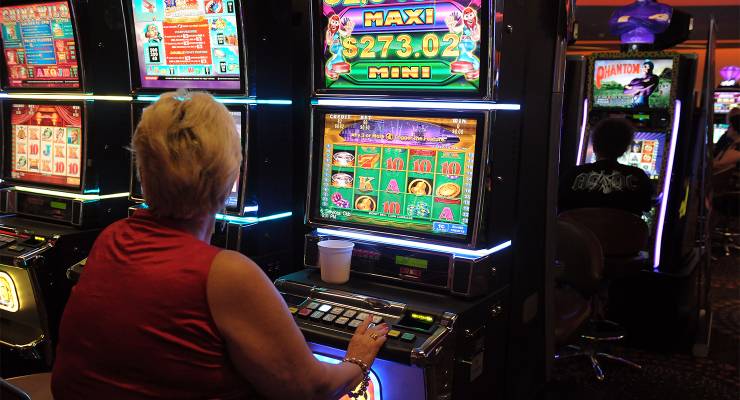
I’ve been overcome by déjà vu recently, reading the media coverage about the new Centre of Excellence in Gambling Research (CoEGR) at the University of Sydney, led by Professor Sally Gainsbury.
CoEGR is bankrolled by the so-called International Centre for Responsible Gambling, self-described as funded by “generous” gaming companies. Such funding is not unprecedented at the University of Sydney, which many would not be aware has a strong track record of projects funded by the gaming industry. In relation to the CoEGR, the university argues it is “essential” to receive this funding because it enables access, “allowing researchers to conduct live trials and test the efficacy of interventions designed to encourage positive behavioural change”.
But what does “positive behavioural change” mean in practice?
Back in 2001, the first research project I ever worked on was conducted by the School of Psychology’s Gambling Research Unit at the University of Sydney, which was established in the late 1990s. The premise of the study, titled “Proposed Changes to the Design of Electronic Gaming Machine Study”, evaluated the impact of proposed changes to the design of gaming machines on gambling behaviour.
The specific changes being tested were slowing the reel spin speed; reconfiguring bill accepts to permit only $5, $10 and $20 notes; and limiting the maximum bet to $1. These were deemed “harm minimisation” measures.
The study was led by Professor Alex Blaszczynski and received funding from the gaming industry. Machines in the study were modified by technicians from Aristocrat Leisure Technologies. (The billionaire founder of Aristocrat, Len Ainsworth, received a Member of the Order of Australia in 2018 for his “significant service to business and manufacturing”.)
As part of the study, over a number of weeks, research assistants like me visited venues across the city. I was assigned to the Fairfield area, which was — and still is — the top-ranked local government area where poker machines yield the highest profits in Australia. It is the most disadvantaged local government area in Sydney and has almost 4000 poker machines. The most recent publicly available data from Liquor and Gaming NSW about poker machine earnings from clubs and hotels reveals profits of more than $225 million for Fairfield.
My data collection involved approaching bleary-eyed punters working the pokies.
“I just lost over $10,000,” said one man unprompted, his voice shaky, eyes shot with blood. It was still morning.
The study researchers would go on to report that “two of the three proposed changes, reconfiguring bill acceptors and slowing the reel speed, would be of limited benefit in assisting problem gamblers”. As James Boyce wrote in The Monthly in 2019, it’s exactly such studies led by researchers from credible academic institutions that “underpin the poker machine industry’s purported social licence”.
The harm minimisation approach used to frame this kind of research assumes we will engage in harmful activities, seemingly against our own interests — like excessive alcohol consumption, injecting drugs or unsafe sex — and that cushioning the impact is the best solution on offer.
More critically minded researchers and practitioners focus on the political and social determinants underpinning societal problems. However, other researchers, particularly in psychology, focus on “behavioural change”. This approach inevitably puts the onus on individuals rather than tackling more politically complex and challenging structural reform.
It’s been heartening to hear that MPs — largely independents — have been vocal in their concerns about the University of Sydney’s CoEGR: “institutional capture” (Zoe Daniel), “undiluted bullshit” (Andrew Wilkie), “utterly appalling” (Rebekha Sharkie). It brings to mind Senator Nick Xenophon, who in 2014 even went so far as to describe Blaszczynski as the gaming lobby’s “pin-up boy”. Blaszczynski, incidentally, supervised Professor Sally Gainsbury’s doctorate in clinical psychology at the University of Sydney.
Another critic who comes to mind is former councillor Thang Ngo, who served the City of Fairfield from 1999-2008. During his tenure, he was vocal about the stranglehold of the pokies in the area.
“A lot of the victims are faceless,” he once told me when I asked him about that time in his life. “For example, there were restaurant owners who weren’t paying their bills on time because they went and gambled it all at night. We had real issues trying to get people to talk about it.”
Ngo acknowledged there have been “marginal improvements” over time. “But it just never quite eradicates the problem. They always have the upper hand, running sporting clubs and donating to political parties. They also give a lot to council projects like the Moon Festival as well as community groups. That’s the problem: money talks.”
The University of Sydney was once a pioneer with its ethical and uncompromising stance on research funding — in September 1982 its senate passed one of the world’s first policies disallowing staff to accept grants from tobacco companies. Yet for decades the university has been turning a blind eye to funding from the gaming industry, using its institutional credibility to legitimise compromised research, no matter how they might spin it.
Is there a rationality behind industry-funded gambling research? Let us know by writing to letters@crikey.com.au. Please include your full name to be considered for publication. We reserve the right to edit for length and clarity.








The problem is not changing the behaviour of the addicted punter, it’s changing the behaviour of governments. Wean them off the donations, taxes, and perks, and much of the problem will slowly begin to dissolve.
To put it another way, the addicts that need to be sorted out are not the ones feeding the pokies, it’s the ones sucking up the pay-offs.
This beggars belief.
Practical research studies simply indicate to poker machine manufacturers which features don’t have optimal effect on the punters. The research highlights the areas in which to apply new trickery.
The University is highly accomplished at gaming the projects that industry funds?
Sheesh, it took me a while to work out the meaning the author probably intended.
The gambling industry, in its pokies and casino iterations, prefers to be called gaming. Just as it prefers to call its users customers or players. Many government’s follow suite (sic) and have ministers for gaming not gambling. Industry and government also prefer to report on pokies, casino or wagering expenditure rather than losses.
Yes, a hyphen between “gaming” and “industry” would help.
Indeed, and placing an appropriate verb before ‘gaming’ , such as ‘attracting’, would also have been much clearer.
Thanks for the feedback, the article has been updated for clarity
Industry funded research will look at behavioural modification, usually without looking critically at the behavioural conditioning that the pokies do to encourage and intensify gambling harm.
For example, independent research has already established a multitude of features in pokies that encourage, and in the cases of the vulnerable, condition continual harmful play. Apart from the random variable reinforcement and the lights and sounds, there are free spins, high jackpots, losses disguised as wins, the speed of play and bet sizes that make losses of $800+ an hour possible (double that in NSW with its higher bet limits). This research has been sitting around for years, available as evidence to support government policy serious about addressing harm.
With industry funded research you get an emphasis on what might be called, “responsible gambling” research. Research that looks at how people behave (“responsibly” or “irresponsibly”) and how interventions might encourage them to behave differently. This research focus means a steering away from looking at what makes the products hazardous and what might make them less hazardous. That pokies are very hazardous and are associated with harm for those using them regularly (over one in three), is intimately connected to the level of profit they generate. To seriously reduce the harm they cause would be to seriously reduce their profitability. Academics are quite smart enough to know that (a) research in that area won’t be welcome by industry sponsors (b) other types of research that won’t impact profit much but will buy social licence will be welcome. So it is not that the actual research conducted is corrupted by the money, rather it is that the choices of what sort of research is conducted is influenced.
Sydney University is seriously tarnishing its academic reputation in taking this money. Indeed, some might say prostituting it.
It’s not a new tactic and University of Sydney seems to have become a target to be ‘gamed’, not just by the ‘gaming’ sector and/or externally by donors, but imported US fossil fueled right wing ‘libertarian’ (authoritarian?) using Trojan Horses and stunts to access, then nobble higher education (& K12) e.g. faux ‘freedom of speech’ and LGBT nexus, to create media content.
Infiltration can be innocuous, but there are warnings elsewhere about one of the big fossil fueled players, Kochs in both US and UK; in the former there is ‘UnKoch My Campus’ information network and recently in the UK ByLine Times:
‘Revealed: The Charles Koch Foundation’s Staggering Donations to UK’s Top Universities. New research by Byline Times reveals that billionaire oil magnate Charles Koch – behind hundreds of millions in annual donations promoting climate science disinformation and right-wing causes in the US – has been contributing to academic research in UK institutions’
https://bylinetimes.com/2023/06/21/revealed-the-charles-koch-foundations-staggering-donations-to-uks-top-universities/
Why do we need research? The solutions are relatively simple if we realise the premise – and take it seriously – that gambling, like some of the other vices Ngoc Pham reveals come under similar funding pressures, viz. excessive alcohol consumption and illegal drug-taking, does not need tinkering around the edges. Like slower spinning wheels or deposit limits. And, what is required is more than mere Psychology-based solutions which lay blame and are guilt-inducing exercises (or games) for individuals who are affected by these moral-social diseases. For a genuine response we need those structural and cultural changes spoken of. That is the how and why real, actual change will occur. Put the funding there, in programs which help those affected to stop. Though, obviously, those bodies with self-interest will then withdraw their fundings. We need a culture and social structures which endorse moderation.